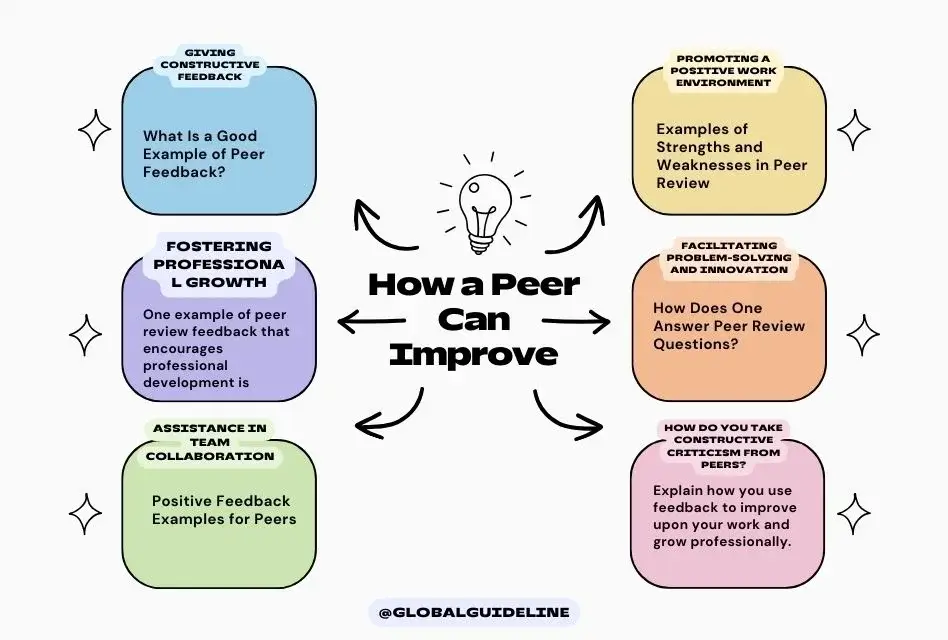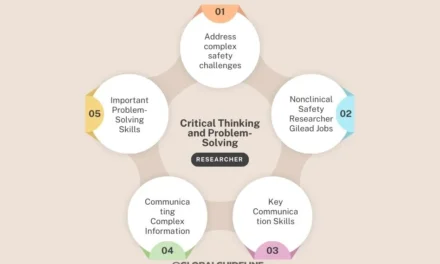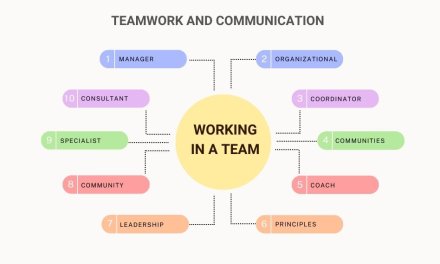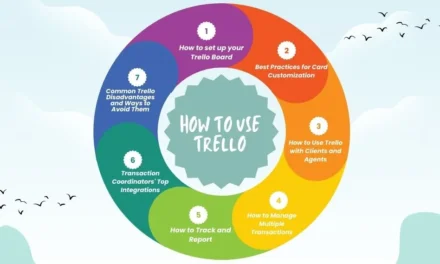Peer relationships are very important in personal and work environments: They open up the dimension of growth, collaboration, and mutual support. If peers actively contributed towards the growth of others, then the working environment would turn positive in nature, bolster teamwork, and promote collective success. The following article discusses 5 examples how a peer can improve and grow better. Further, it provides actionable insights that would be relevant in any setting, illustrating examples how a peer can improve and grow better.
Table of Contents
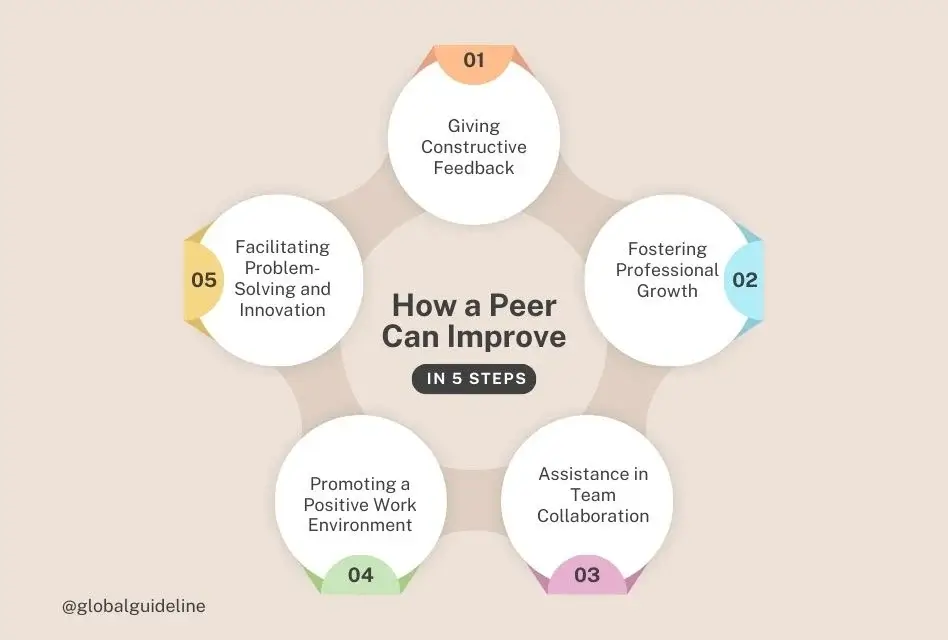
1. Giving Constructive Feedback
Probably the most useful single method for helping fellow workers improve their performance is by giving constructive feedback, which can serve as examples how a peer can improve and grow better. Constructive feedback differs from mere criticism in that it not only points out where an individual has gone wrong but also outlines the positive features of his or her work, providing examples how a peer can improve and grow better.
What Is a Good Example of Peer Feedback?
A good example of peer feedback might be:
“I’ve noticed that your attention to detail is really very good, particularly in the recent project. However, I feel you could do a bit better on time management and manage deadlines more effectively.”
In this kind of feedback, it is already recognized how strong peers can be, and at the same time, there is a gentle suggestion for an area of improvement that will create a balance not to discourage growth.
How to Write a Good Peer Performance Review?
While conducting a peer performance review, honesty, specificity, and being supportive are main factors. Emphasize the strengths as much as the improvements to be worked on to make the review well-rounded. For example:
“Your leadership skills really shine in team meetings. I feel additional refinement in communication skills, particularly during one-on-one interactions, may help attain better integration with the team.”
2. Fostering Professional Growth
A great deal can be done by peers for one another in terms of professional development, especially where continuous learning and skill enhancement are concerned. This may involve sharing of resources, recommendation to useful training programs, or just mentoring one another in places one person may have experience.
One example of peer review feedback that encourages professional development is:
Examples of Providing Better Peer Review Feedback that Fosters Professional Growth
“Your problem-solving skills are impressive, and I feel that attending a workshop in advanced technical skills can help you in even more complex challenges.”
Here, with specific ways for growth, peers will guide each other to stay ahead in careers.
How Do You Write a Peer Response Example?
Writing a peer response involves appreciation of the feedback provided and your readiness and commitment to improve. For example:
“Thank you for pointing out the areas where I can improve. I would definitely look into the suggested training to enhance my skills.”
3. Assistance in Team Collaboration
Collaboration is a critical parameter of success within team objectives, and peers can complement each other’s work by supporting the collaboration effort through active participation, knowledge sharing, and so on, thus ensuring free information flow within the team.
Positive Feedback Examples for Peers
A peer may facilitate team integration by providing customer feedback such as:
“You have contributed much during our meetings, which really adds to the brainstorming of the solutions. Let’s keep up this kind of collaboration to ensure that we all contribute according to our best abilities.”
This feedback reinforces the value of teamwork and encourages further collaboration.
Peer Review for Colleague Example
A peer review to a colleague conducting a contribution to team collaboration might look something like this:
“You have that really good skill about bringing the team together and leading in discussions to better decisions. Keep utilizing your communication skills, which is able to hold on to this positive work environment.”
4. Promoting a Positive Work Environment
A positive work environment is critical to personal and professional growth. This may be achieved through peers by the positive attitude, being empathetic, and taking each other through tough times.
Examples of Strengths and Weaknesses in Peer Review
A peer review focusing on both strengths and weaknesses might say:
“Your positiveness is contagious, which keeps the team motivated. One area to work on could be your approach to constructive criticism; being a little more mindful could help you make your feedbacks even more effective.”
This kind of balanced feedback will help peers realize how much they can add to the work environment and wherein to make improvements.
What Can Peer Review Improve?
It can increase work quality, team, and communication skills by providing focused feedback that covers what needs to be improved while recognizing and building on strengths.
5. Facilitating Problem-Solving and Innovation
Joint effort to find innovative solutions to challenges can enhance each other’s problem-solving capabilities to a large extent. Such an approach of collaboration enhances individual skills and leads to innovation in the team.
Peer Review Feedback Examples
Feedback that would work for facilitating problem-solving could be:
“You always bring in a different perspective into problem-solving, very valuable. I think we could even more so profit from working together, joining forces in just brainstorming some innovative solutions for the current project challenges.”
It encourages joint problem-solving to strengthen the team’s overcome of obstacles for better results.
How Does One Answer Peer Review Questions?
In responding to peer review questions, be reflective and honest. Consider how the feedback is going to help you do your job better and be an asset to the team. For instance:
“Based on the feedback, I realize that I can do better in the area of communication during team meetings. I will work harder to be more concise and clear while presenting my ideas.”
Peer Feedback and Growth in a Job Interview Discussion
In the process of a job interview, the candidate is most likely to come across questions related to working with peers and taking their feedback. Describing your experience with examples how a peer can improve and grow better is one of the things that might leave a strong impression.
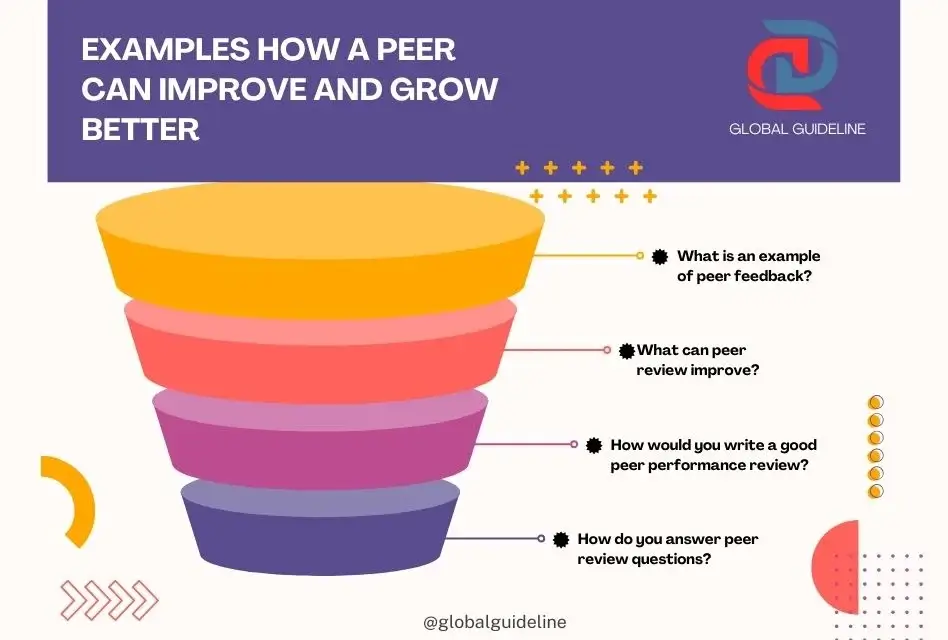
Common Interview Questions
- How do you take constructive criticism from peers?
- Explain how you use feedback to improve upon your work and grow professionally.
- Describe an example of a situation where peer feedback improved your performance?
- Describe one incident you handled where the feedback given by the peer improved significantly in skills or your performance.
- How do you contribute to a positive work environment?
- Describe how you bring in positive energies and support in creating a collaborative, motivating environment that enables your team to excel.
FAQs: Examples How a Peer Can Improve and Grow Better
What is an example of peer feedback?
A great example of peer feedback would be to identify one’s strengths while bringing out what needs to be improved. For instance: “Your attention to detail is exemplary, and with further attention toward managing time, you could meet deadlines better.”
What can peer review improve?
Peer review can help in improving the quality of work through focused and constructive feedback, developing communication and problem-solving skills, and building up collaboration between individuals.
How would you write a good peer performance review?
To write a good peer performance review, honesty, specificity, and supportiveness should be included. It should mention the strengths and weaknesses so that it can cover all the areas in a holistic way.
How do you answer peer review questions?
In reviewing the questions from the peer review, note how you can apply the feedback to make your work better. Reflective, honest assessment of your strengths and weaknesses is required.
What are the 7 peer review tips?
The seven peer review tips entail being specific, focusing on strengths, offering constructive criticism, respect, not showing personal bias, including action items, and showing continuous improvement.
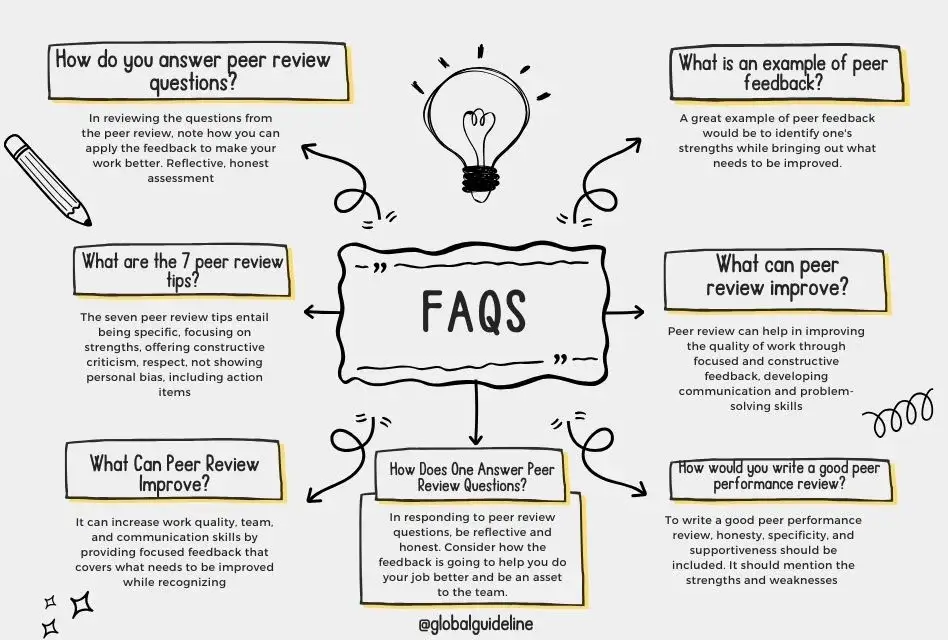
Conclusion: The Power of Peer Support in Professional Growth
Peers can help each other improve and develop both personally and professionally. Whether through constructive feedback, encouraging professional development, supporting team collaboration, promoting a positive work environment, or facilitating problem-solving, peers can provide examples how a peer can improve and grow better. This collaborative approach can make a giant impact on the success of fellow peers, showcasing examples how a peer can improve and grow better.
This publication on 5 Examples How a Peer Can Improve and Grow Better: USA Insights shares practical approaches in any work context that each of us can implement. You can use these practices to nurture more supportive and collaborative work environments for the benefit of all.

